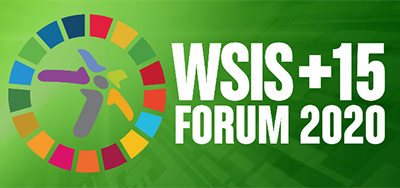UNCTAD discusses the state of the information society at the 15-year anniversary since the landmark World Summit on the Information Society summit.
The pace of technological development and digitalization has been remarkably and exponentially fast.
Indeed, when the world came together for the World Summit on the Information Society (WSIS) in 2003 and 2005 to discuss information and communication technology (ICT) development and digital divides, some technologies widely used today were in their infancy or did not even exist.
Yet, they are now mainstream. Others have become obsolete and or replaced by later innovations. The scope and scale of the impact of digital technologies on economy, society, culture and governance just accelerated exponentially.
On the other hand, digital divides remain a challenge, hampering equitable reaping of benefits from the information society.
Today, digital divides are no longer only about access but increasingly about the growing concentration of benefits from and influence over digitalization,” said UNCTAD’s director of technology and logistics, Shamika N. Sirimanne.
“There are also new forms of challenges brought by this rapid technological development such as cybersecurity, privacy rights and data protection.”
She was speaking at the World Summit on the Information Society Forum 2020 (WSIS Forum 2020), the world's largest annual gathering of the “ICT for development” community co-organized by the International Telecommunications Union, UNCTAD, UNESCO and the United Nations Development Programme.
UNCTAD hosted an online session on what is needed to build the information society of the future in collaboration with all United Nations Regional Commissions on 4 August.
Towards more people-centred information society
The virtual workshop was designed to reflect about the dramatic changes that the information society has experienced and the pathways that it could take for the future.
At the event Ms. Sirimanne, introduced a new publication “Fifteen Years Since the World Summit on the Information Society” which summarizes the achievements and challenges of the evolving information society seen in the last 15 years.
Ms. Sirimanne also highlighted the new trends emerging from the information society including the growing role of data, changing ICT business environment particularly the rise of platform companies, the unprecedented pace and unpredictability of change and the growing importance of ICT in achieving sustainable development.
“Due to the winner-takes-all dynamics of digital markets, the dominance by a handful of platforms poses a particular challenge to businesses everywhere but especially those in smaller and less developed countries,” she said.
She also underscored some of the new challenges on the horizon such as digital trust and security as well as human rights and ethics in the digital world.
“Cybersecurity has become a top priority for governments, businesses and citizens around the world. Governments and businesses have faced threats to the integrity of their digital systems, including attacks originating from sources outside their territory. Digital security is now synonymous with national security,” Ms. Sirimanne said.
She also emphasized the importance of multi-stakeholder engagement in guiding the future developments in the information society.
Ms. Sirimanne’s intervention was followed by statements by the representatives from all UN Regional Commissions, namely UNECA, UNECE, UNECLAC, UNESCAP and UNESCWA, which provided more details on the regional perspectives of the issues.
The follow up to the summit is a crucial part of UNCTAD’s work in support of the UN Commission on Science and Technology for Development (CSTD), of which UNCTAD is Secretariat.
Over the years this has resulted in a considerable body of knowledge about the developmental implications of the information society, much of it thanks to the involvement of experts who attended the workshop.

